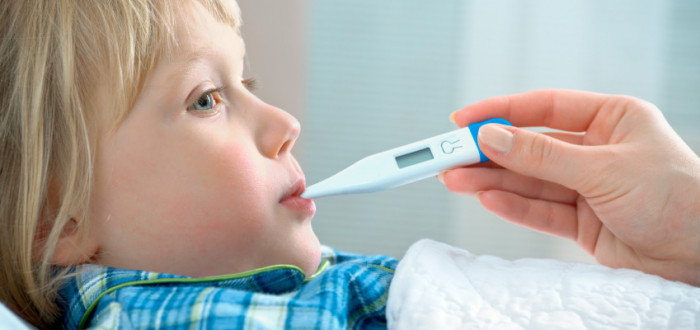When a child has a fever: Dr. Miklášová advises what grandmother's advice helps and when it's too late for them<
It is not a disease in itself, but only a manifestation of it. "Fever does not arise in the body for nothing, it is the body's natural defense mechanism, in which the immune system can better fight germs," explains PharmDr. Irma Miklášová and adds: "However, this does not mean that we can leave the child in a fever for a few days. We consider these to be a situation where the body temperature rises above 38 degrees. ”Fever can be accompanied by various injuries or, for example, cutting teeth.
We should see a doctor immediately if the child does not respond to the call, vomits repeatedly or a rash, for example. If the child has "only" a fever, we do not have to run to the doctor immediately. "In general, we should bring him to the surgery only if his condition does not improve for two to three days. Of course, for infants under 3 months of age, it is appropriate to resolve the situation immediately. ”If we are not sure, we can always call a doctor and consult.

Wraps and syrups will help
"Although high body temperature helps to destroy the pathogen, it is also very exhausting for the body. Cooling the body with wraps or a lukewarm shower will help reduce it, and two basic types of medication are used in children. Suppositories, tablets or syrups containing paracetamol or ibuprofen are used to reduce fever in children. We choose the form of medicine according to the child's tolerance and age. Ibuprofen Apotex syrup with strawberry flavor is popular, which can be used by children from 5 kilograms in weight, ”recommends PharmDr. Irma Miklášová.
For children, it is important to choose drugs according to their weight, not just age. "At the same time, it is necessary to observe the interval between individual doses. For example, Ibuprofen Apotex syrup takes 6 hours. ”If necessary, you can combine body cooling and medication. It is also important to monitor adequate fluid intake, as young children become dehydrated very quickly.
Panic is out of place
A young organism generally copes with diseases better than an adult or even a senior. If there are no major complications, there is no need to panic during childhood fever.
"The fact that the child's immune system is learning to fight diseases in the future can be considered positive. Of course, this does not change the fact that every health problem, including increased temperature, is a nuisance for both children and their parents, "concludes PharmDr. Miklášová.


 Tags:
Tags: Prev
Prev







